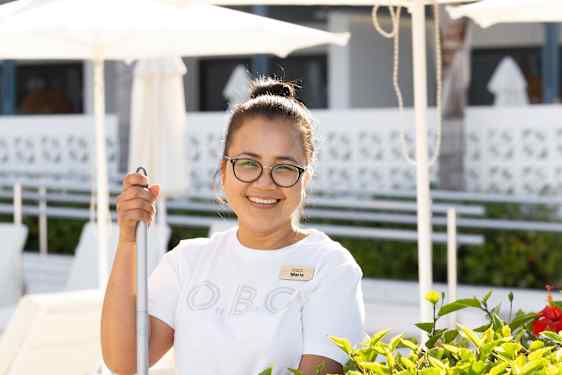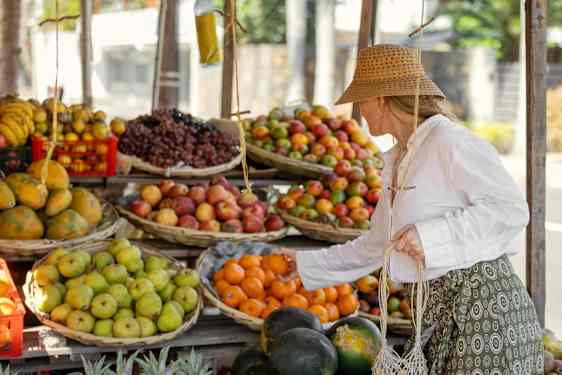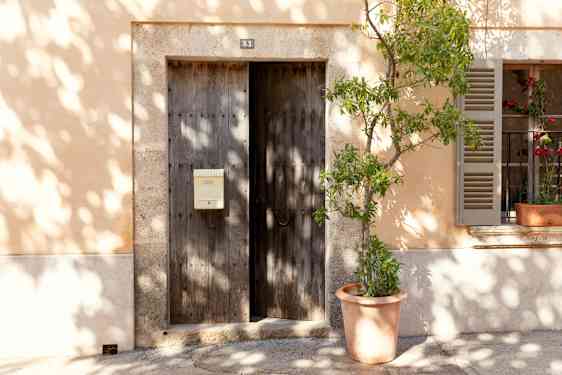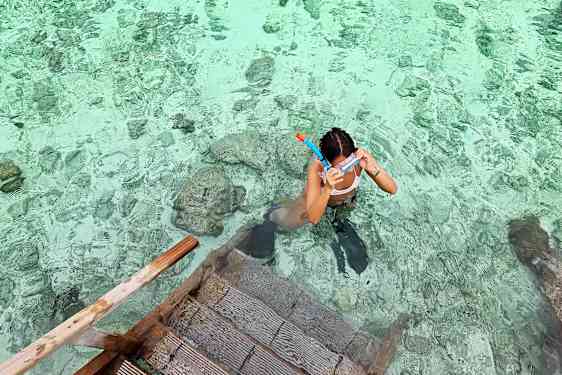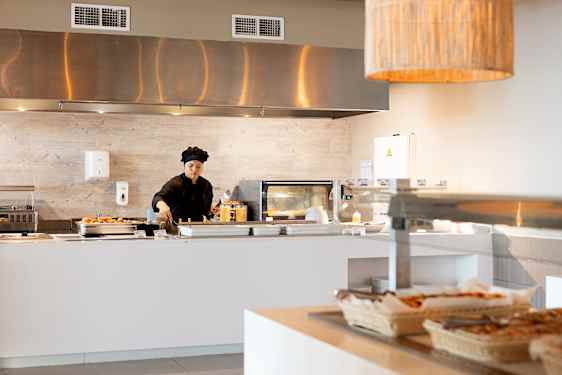Feeding the economy in local destinations
As a responsible company dedicated to enriching life, it’s important that our work has a positive impact on communities in the destinations where we operate. This reaches far beyond just creating jobs; it’s also about supporting local businesses and protecting the environment. Food is one example where we can make a difference.

Meet Magnus Jansson
A foodie at heart, Magnus has always loved to cook. He spent 20 years in Madrid, working in various hotels and restaurants, before moving back to Sweden in 2012. Today, he’s Head of Food & Beverages at NLTG. He loves working with our fantastic staff in Sweden and in our destinations, and is always excited to learn about new cultures, foods and drinks.
Tapas, paella, gambas and locally grown fresh fruit and vegetables. When our customers sit down to dine at the Sunwing Alcudia Beach Hotel in Mallorca, they get much more than just well-made food and a stunning view. They also get to taste local flavours and traditional Mallorcan dishes, packed with delicious ingredients sourced from local producers or grown in the hotel’s own kitchen garden.
Locally grown food has always been a key part of our offering at NLTG. In 2024, we took that one step further when we introduced a new Resorts & Hotels Food Policy for our concept hotels that aims to highlight the culinary traditions of the destination.
By promoting local, fresh and nutrient-rich ingredients in this way, we can give our guests a memorable culinary experience while helping increase their understanding of the region they are visiting and raising awareness of healthy eating. At the same time, the policy prioritises ingredients from local artisanal producers, which supports the local economy and ecosystem and reduces emissions from food transportation.

Loved by guests and local producers
Since the policy was introduced, we have brought in new menus and buffets in our concept hotels, featuring local specialities and traditional products.
Magnus Jansson shares a few examples. “The bananas in the Canary Islands are very special – smaller and tastier than regular bananas. In our concept hotels at this destination, our customers get to try these, either as fresh fruit or in our desserts and cakes. The banana mousse is a particular favourite,” he says. “And there are many more examples. We offer kleftiko in Cyprus, kebab in Türkiye, gyros in Greece and over 30 local dishes in our hotels in Thailand. All these dishes are regional specialties, based on local ingredients.”
These menu items are exciting for our guests, and something they enjoy. In a survey conducted by NLTG in 2023, more than 50% of customers said they feel it’s important to choose local products over imported ones when they travel. Our local menus make that easier. But the policy has another, perhaps more important benefit. By purchasing locally sourced, seasonal ingredients, we support nearby food producers and the destination economy as a whole.
In many of the destinations we operate in, tourism is the largest industry. In Mallorca, for example, tourism accounts for almost 70% of the island’s total economic output – and many people rely on it to earn a living.
As a large hotel operator in Mallorca, we contribute to the economy by paying local taxes, employing local people and supporting local businesses. Our new Resorts & Hotels Food Policy should increase that spend even further.

Better for the environment
Like any goods, transporting food and beverages long distances increases supply chain complexity and CO2 emissions associated with transport. Sourcing food locally, therefore, has a beneficial environmental impact. We are hopeful that our new policy will result in a reduction in emissions from food and beverage transportation. But it may also lead to other improvements, by helping overcome some of the challenges associated with catering to certain customer needs.
Many travellers from the Nordic region, for example, like to eat beef. However, beef can be hard to source in some destinations, such as the Canary Islands. While beef will remain on the menu, we hope that our new Resorts & Hotels Food Policy can reduce beef consumption by offering our guests a range of enticing traditional alternatives, based on locally raised meat, such as lamb. We are also investing in companies that produce plant-based meat alternatives, such as Juicy Marbles, through the ClimatePoint investment platform.These meat-free alternatives significantly reduce CO2 emissions compared to traditional meats and may appear on our menus in the not-so-distant future.


The future is tasty and local
Despite only being introduced this year, our Resorts & Hotels Food Policy is already changing the way we source, prepare and present food at our hotels for the better. As the concept becomes embedded in our organisation, we expect the benefits to grow – for our guests and local producers.
“As a team, our Food & Beverage organisation is really excited to work with the new policy,” says Magnus. “It’s a way for us to bring local flavours to our guests, giving them a deeper insight into the country and its culture. In future, we want to partner even more closely with local producers to develop new, sustainably produced products and local dishes together, which will please our guests and increase our local spend.
Reducing food waste in Mallorca
Food waste from our hotels in Mallorca is sent to the local authorities for use in biofuel production – a CO2 -neutral alternative fuel. Like many of our hotels, they also work with Too Good To Go, a global organisation that connects people with restaurants, stores and hotels with surplus food. At our hotels in Mallorca, this reduced food waste in 2024, while making high-quality lunches and dinners available to local people at a reduced price.
Award winning ‘0 kilometre’ initiative
As part of our efforts to reduce CO2 in our supply chain and support local economies, Ving launched its ‘0 km’ initiative in Mallorca in 2024. The initiative, which aims to increase local sourcing at our hotels on the island, was recognised at Spain Talks in Stockholm in September – an event organised by Spain's Tourist Office to share best practice initiatives and sustainable programmes in tourism.


